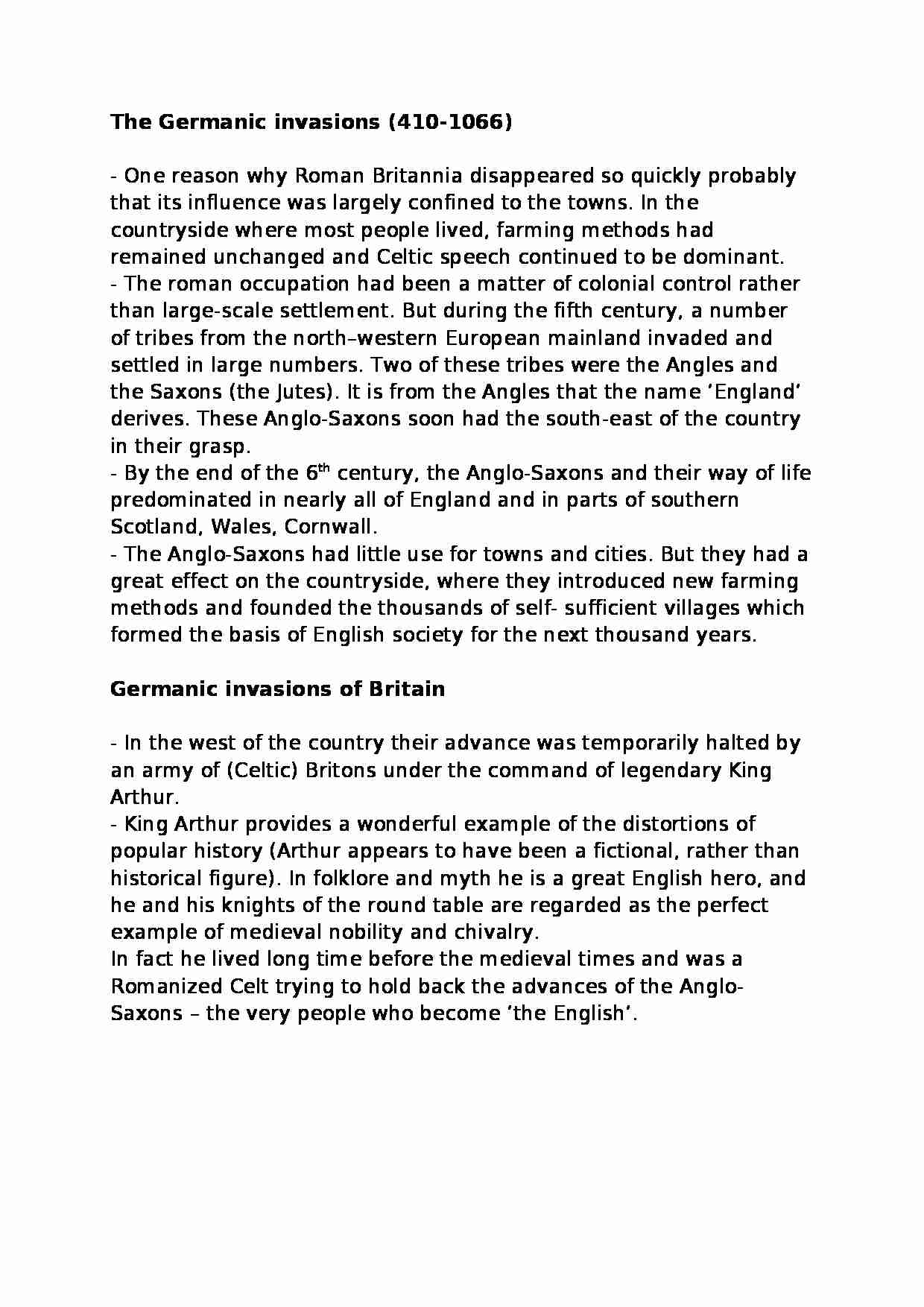
The Germanic invasions (410-1066) - One reason why Roman Britannia disappeared so quickly probably that its influence was largely confined to the towns. In the countryside where most people lived, farming methods had remained unchanged and Celtic speech continued to be dominant. - The roman occupation had been a matter of colonial control rather than large-scale settlement. But during the fifth century, a number of tribes from the north-western European mainland invaded and settled in large numbers. Two of these tribes were the Angles and the Saxons (the Jutes). It is from the Angles that the name `England' derives. These Anglo-Saxons soon had the south-east of the country in their grasp. - By the end of the 6th century, the Anglo-Saxons and their way of life predominated in nearly all of England and in parts of southern Scotland, Wales, Cornwall. - The Anglo-Saxons had little use for towns and cities. But they had a great effect on the countryside, where they introduced new farming methods and founded the thousands of self- sufficient villages which formed the basis of English society for the next thousand years. Germanic invasions of Britain - In the west of the country their advance was temporarily halted by an army of (Celtic) Britons under the command of legendary King Arthur. - King Arthur provides a wonderful example of the distortions of popular history (Arthur appears to have been a fictional, rather than historical figure). In folklore and myth he is a great English hero, and he and his knights of the round table are regarded as the perfect example of medieval nobility and chivalry. In fact he lived long time before the medieval times and was a Romanized Celt trying to hold back the advances of the Anglo- Saxons - the very people who become `the English'.
... zobacz całą notatkę



Komentarze użytkowników (0)